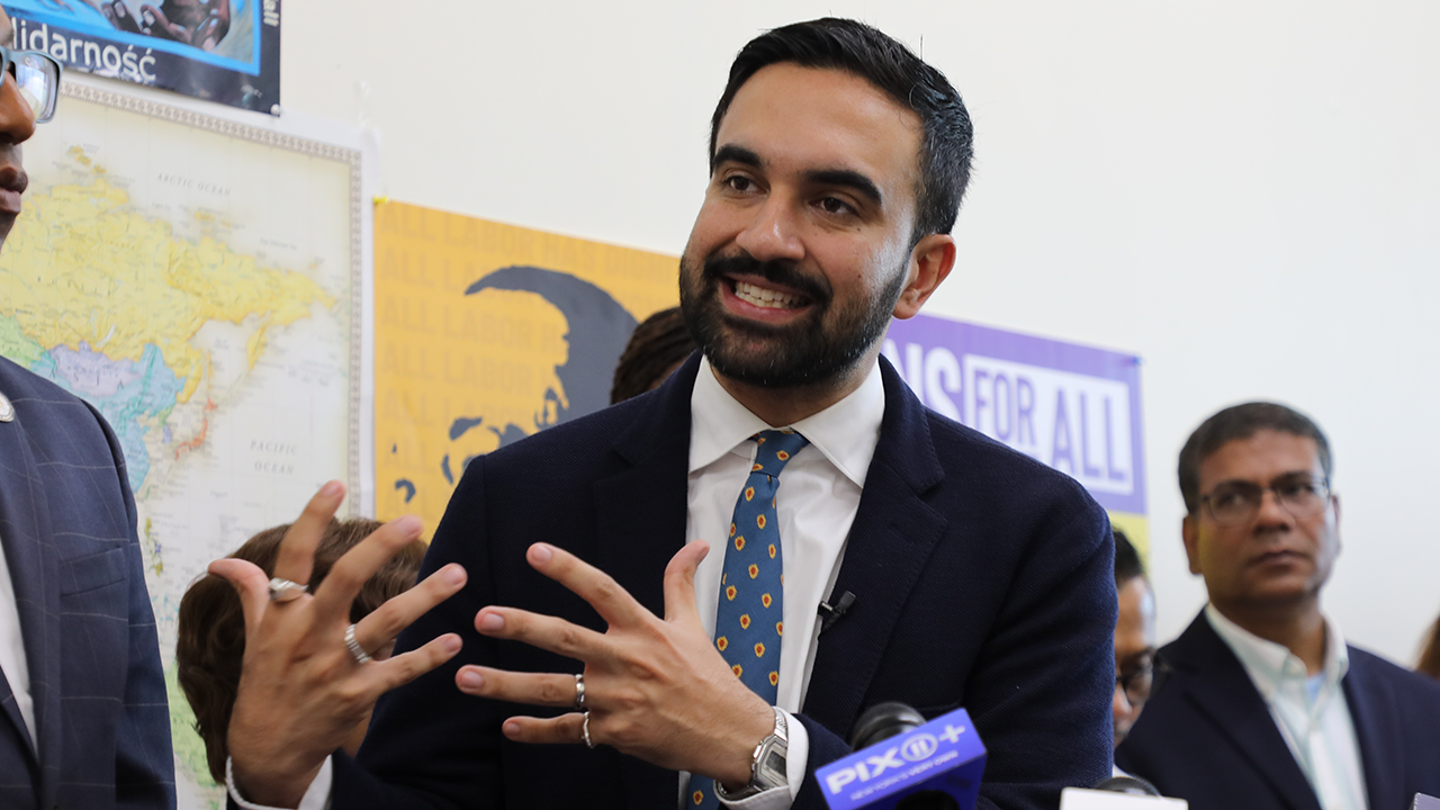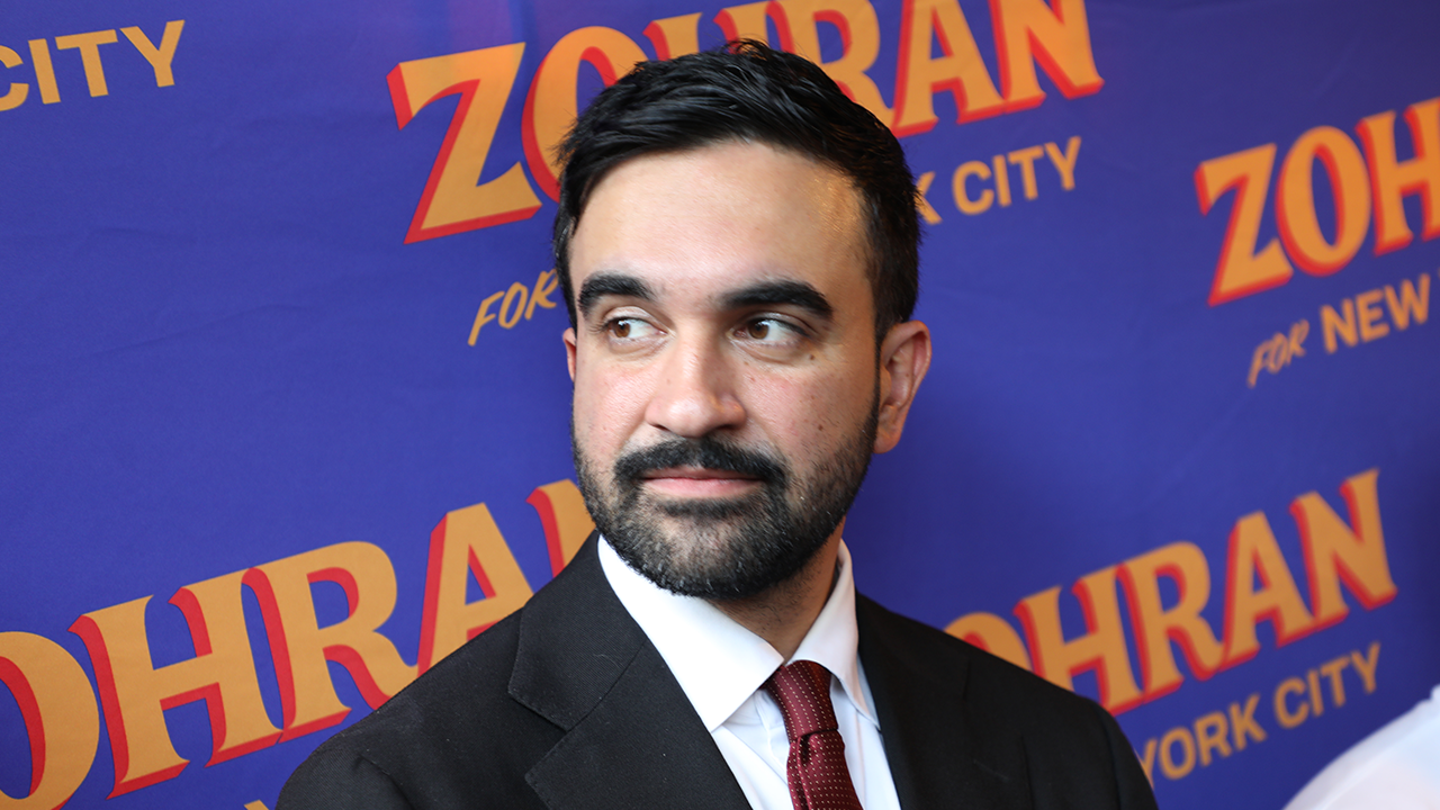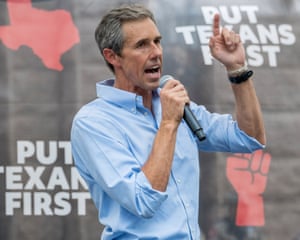
Mamdani reveals which Dem cities are 'model for how to fight' Trump admin in NYC
Entities mentioned:
- Zohran Mamdani: Righteousness, Moral outrage, Determination
- Donald Trump: Power, Control, Influence
- Andrew Cuomo: Ambition, Self-preservation
- Michelle Wu: Righteousness, Determination, Moral outrage
- Pam Bondi: Duty, Control
- Gavin Newsom: Ambition, Competitive spirit
- Claudia Sheinbaum: Sovereignty, Pride
- Abigail Jackson: Loyalty, Competitive spirit
Article Assessment:
Credibility Score: 65/100
Bias Rating: 35/100 (Lean Left)
Sentiment Score: 30/100
Authoritarianism Risk: 45/100 (Mixed/Neutral)
Bias Analysis:
The article leans left in its framing, giving more space and favorable coverage to Democratic perspectives. While it includes a Republican response, the overall narrative emphasizes Democratic resistance to Trump policies.
Key metric: Political Polarization Index
As a social scientist, I analyze that this article highlights the growing political polarization in the United States, particularly between Democratic-led cities and the Republican federal administration. The confrontational stance of local leaders against federal policies indicates a deepening divide in governance approaches and ideologies. This conflict is likely to increase the Political Polarization Index, as it showcases a clear us-vs-them mentality in policy-making and implementation. The article presents a narrative of resistance and defiance from Democratic leaders, which could further entrench partisan positions and make compromise more difficult. The use of legal challenges, public statements, and policy implementations to counter federal initiatives suggests a complex interplay of federalism and party politics that is likely to intensify political divisions.

Trump targets Chicago and New York as Hegseth orders weapons for DC troops
Entities mentioned:
- Donald Trump: Power, Control, Influence
- Pete Hegseth: Loyalty, Duty, Security
- Pentagon: Control, Security, Obligation
- Ukraine: Self-preservation, Justice, Freedom
- Zohran Mamdani: Ambition, Recognition, Influence
- Marjorie Taylor Greene: Moral outrage, Righteousness, Influence
- Bernie Sanders: Justice, Moral outrage, Influence
- Kilmar Ábrego García: Self-preservation, Fear, Security
- Gavin Newsom: Competitive spirit, Ambition, Recognition
- Arnold Schwarzenegger: Justice, Legacy, Influence
- Ghislaine Maxwell: Self-preservation, Loyalty, Fear
Article Assessment:
Credibility Score: 70/100
Bias Rating: 40/100 (Lean Left)
Sentiment Score: 35/100
Authoritarianism Risk: 45/100 (Mixed/Neutral)
Bias Analysis:
The article leans slightly left, evidenced by more coverage of Democratic figures and initiatives. While it includes some Republican perspectives, the framing tends to be more critical of conservative positions.
Key metric: Political Polarization Index
As a social scientist, I analyze that this article highlights increasing political polarization in the United States. The content spans various political issues, from immigration and foreign policy to electoral politics and social issues. Trump's continued influence on Republican politics is evident, while Democratic figures are positioning themselves in opposition. The mention of partisan redistricting, sanctuary city policies, and contrasting approaches to issues like the Gaza conflict and offshore wind farms underscore deep divisions along party lines. This polarization is likely to impact governance, policy-making, and social cohesion, potentially leading to increased gridlock and decreased ability to address national challenges effectively.

Pro-Mamdani super PAC takes hefty check from ultra-wealthy donor despite saying billionaires shouldn't exist
Entities mentioned:
- Zohran Mamdani: Ambition, Righteousness, Influence
- Elizabeth Simons: Influence, Legacy, Righteousness
- Jamie Simons: Legacy, Influence, Philanthropy
- Andrew Cuomo: Competitive spirit, Indignation, Power
- New Yorkers for Lower Costs PAC: Influence, Power, Unity
Article Assessment:
Credibility Score: 75/100
Bias Rating: 65/100 (Lean Right)
Sentiment Score: 35/100
Authoritarianism Risk: 25/100 (Generally Democratic)
Bias Analysis:
The article leans slightly right, focusing on the contradiction in Mamdani's campaign and giving voice to his critic, Andrew Cuomo. While it presents factual information, the framing emphasizes perceived hypocrisy in left-leaning politics.
Key metric: Income Inequality
As a social scientist, I analyze that this article highlights a significant contradiction between Zohran Mamdani's campaign rhetoric against billionaires and the acceptance of substantial donations from billionaire-adjacent sources. This disconnect potentially impacts income inequality by undermining efforts to address wealth concentration. The article exposes the complex relationship between political ideals and campaign finance realities, suggesting that even candidates with strong anti-billionaire stances may struggle to completely detach from wealthy donors' influence. This situation could affect public trust in political campaigns and potentially hinder genuine efforts to address income disparities in New York City.

Mamdani’s fundraising surges past Cuomo, Adams in New York mayoral race
Entities mentioned:
- Zohran Mamdani: Ambition, Competitive spirit, Determination
- Eric Adams: Self-preservation, Power, Legacy
- Andrew Cuomo: Ambition, Power, Recognition
- Curtis Sliwa: Duty, Recognition, Determination
- Elizabeth Simons: Influence, Righteousness, Legacy
- Alice Walton: Influence, Power, Legacy
Article Assessment:
Credibility Score: 75/100
Bias Rating: 45/100 (Center)
Sentiment Score: 55/100
Authoritarianism Risk: 20/100 (Strongly Democratic)
Bias Analysis:
The article presents a balanced view of multiple candidates, including both positive and negative aspects. While it gives more space to Mamdani's success, it also covers other candidates' situations, maintaining a relatively neutral stance.
Key metric: Political Campaign Financing
As a social scientist, I analyze that this article highlights a significant shift in political dynamics in New York City's mayoral race. Mamdani's surge in fundraising, particularly from small-dollar donors and out-of-city contributions, suggests a growing popularity of his progressive platform. This contrasts sharply with the financial challenges faced by established politicians like Adams and Cuomo, potentially indicating a change in voter preferences and campaign finance dynamics. The involvement of billionaire-adjacent donors, despite Mamdani's anti-billionaire stance, presents an interesting contradiction that could impact public perception. The article also underscores the importance of public campaign financing and the challenges faced by candidates under investigation, as seen with Adams' situation. Overall, this fundraising data could be an early indicator of shifting political allegiances and the effectiveness of different campaign strategies in a highly competitive urban political landscape.

'Maine's Mamdani': Maine GOP chief issues warning about new challenger looking to oust Susan Collins
Entities mentioned:
- Susan Collins: Self-preservation, Loyalty, Influence
- Graham Platner: Ambition, Justice, Influence
- Jason Savage: Competitive spirit, Wariness, Control
- Maine Republican Party: Power, Control, Self-preservation
- Democratic Party: Power, Control, Unity
- Zohran Mamdani: Influence, Justice, Recognition
- Janet Mills: Ambition, Influence, Duty
Article Assessment:
Credibility Score: 65/100
Bias Rating: 75/100 (Lean Right)
Sentiment Score: 35/100
Authoritarianism Risk: 40/100 (Generally Democratic)
Bias Analysis:
The article leans right, primarily quoting Republican sources and framing progressive Democrats negatively. It presents a one-sided view of the political landscape, emphasizing potential threats from left-wing candidates without balanced perspectives.
Key metric: Political Polarization Index
As a social scientist, I analyze that this article highlights the growing ideological divide within the Democratic Party and between Democrats and Republicans. The framing of Graham Platner as 'Maine's Mamdani' suggests an attempt to associate him with more radical left-wing politics, potentially alienating moderate voters. This polarization could impact voter turnout and party unity, ultimately affecting the balance of power in the Senate. The article's focus on ideological extremes and the characterization of progressive policies as 'very unpopular' indicates a potential shift in political discourse towards more polarized positions, which could have long-term effects on bipartisanship and governance.

TikTok isn't enough to stop Gen Z from drifting to AOC. Trump must do 3 things next
Entities mentioned:
- President Trump: Power, Influence, Legacy
- Republican Party: Power, Control, Influence
- Alexandria Ocasio-Cortez: Influence, Justice, Ambition
- Zohran Mamdani: Ambition, Influence, Justice
- Kamala Harris: Power, Influence, Ambition
- Gen Z: Freedom, Justice, Security
Article Assessment:
Credibility Score: 55/100
Bias Rating: 75/100 (Lean Right)
Sentiment Score: 65/100
Authoritarianism Risk: 35/100 (Generally Democratic)
Bias Analysis:
The article leans heavily right, presenting a partisan viewpoint favoring Republican strategies. It frames Democratic approaches negatively while portraying Trump's methods as innovative and successful.
Key metric: Youth Voter Engagement and Party Affiliation
As a social scientist, I analyze that this article emphasizes the importance of digital platforms and direct engagement strategies in capturing the Gen Z vote. The author argues that Trump's success with young voters in 2024 was due to embracing new media formats like TikTok and podcasts. The proposed strategies - a White House podcast, campus tours, and active TikTok presence - aim to solidify and expand Republican support among youth. This approach recognizes the shift in media consumption patterns and the desire for authentic, unfiltered communication from political leaders. The article suggests that these tactics could prevent young voters from aligning with more progressive politicians, potentially reshaping long-term political affiliations and voting patterns.

Today in FocusStephen Miller, Trump’s immigration mastermind – podcast
Entities mentioned:
- Stephen Miller: Influence, Control, Power
- Donald Trump: Power, Control, Legacy
- Beto O'Rourke's group: Influence, Justice, Unity
- Marco Rubio: Influence, Duty, Security
- Democratic cities: Self-preservation, Unity, Security
- Democratic socialists: Ambition, Justice, Influence
- Zohran Mamdani: Ambition, Justice, Recognition
- Ghislaine Maxwell: Self-preservation, Fear, Control
Article Assessment:
Credibility Score: 70/100
Bias Rating: 40/100 (Lean Left)
Sentiment Score: 35/100
Authoritarianism Risk: 55/100 (Mixed/Neutral)
Bias Analysis:
The article compilation leans slightly left, evidenced by the focus on Democratic perspectives and critical tone towards Trump administration policies. However, it does include diverse viewpoints and topics, maintaining a degree of balance.
Key metric: Political Polarization Index
As a social scientist, I analyze that this article compilation reflects increasing political tensions and polarization in the United States. The various topics covered, from immigration policies to international relations and domestic security concerns, highlight the complex challenges facing the nation. The restraining order against Beto O'Rourke's group and the preparation of Democratic cities for potential federal intervention indicate growing distrust between different levels of government and political factions. The mention of Democratic socialists' perceived winning streak suggests a potential shift in political ideologies. The focus on Trump's actions and statements, both domestically and internationally, continues to be a central theme in US politics, further dividing public opinion. This amalgamation of issues and conflicts is likely to exacerbate political polarization, making it increasingly difficult to find common ground on critical national issues.

Victor Davis Hanson shares what's setting Democrats 'on fire'
Entities mentioned:
- Victor Davis Hanson: Influence, Recognition, Righteousness
- Democrats: Moral outrage, Fear, Self-preservation
- Donald Trump: Power, Revenge, Influence
- Zohran Mamdani: Ambition, Recognition, Influence
- Hoover Institution: Influence, Legacy, Professional pride
Article Assessment:
Credibility Score: 55/100
Bias Rating: 75/100 (Lean Right)
Sentiment Score: 35/100
Authoritarianism Risk: 45/100 (Mixed/Neutral)
Bias Analysis:
The article leans right, evident in its framing of Democrats negatively and the positive presentation of critiques against 'woke' ideology. The source, featuring a conservative think tank fellow on a right-leaning show, further indicates a rightward bias.
Key metric: Political Polarization Index
As a social scientist, I analyze that this article likely contributes to increased political polarization. The framing of Democrats as 'melting down' and the focus on conflict between political ideologies suggests a deepening divide. The mention of Trump 'targeting the roots of woke-ness' implies an ongoing culture war, which often exacerbates partisan tensions. This type of rhetoric, especially from influential figures like Hanson, can reinforce existing political divides and potentially increase the Political Polarization Index.

Top House Dem sides with Mamdani critics on key controversy surrounding his campaign
Entities mentioned:
- Hakeem Jeffries: Political calculation, Duty, Self-preservation
- Zohran Mamdani: Ambition, Justice, Influence
- Andrew Cuomo: Revenge, Political calculation, Power
- Dora Pekec: Loyalty, Righteousness, Determination
- Alex Bradley: Moral outrage, Loyalty, Indignation
- Michael Koncewicz: Moral outrage, Indignation, Righteousness
Article Assessment:
Credibility Score: 70/100
Bias Rating: 55/100 (Center)
Sentiment Score: 30/100
Authoritarianism Risk: 35/100 (Generally Democratic)
Bias Analysis:
The article presents multiple perspectives, including critics and supporters of Mamdani. However, it gives more space to critical voices and frames the issue as problematic for Mamdani's campaign.
Key metric: Political Party Unity
As a social scientist, I analyze that this article highlights internal Democratic Party tensions surrounding a progressive candidate in New York City. The controversy over Mamdani's housing situation exposes ideological rifts within the party, with establishment figures like Jeffries distancing themselves from more left-leaning candidates. This impacts party unity by potentially alienating progressive voters and activists, while also revealing the challenges Democrats face in reconciling diverse policy positions within their coalition. The situation underscores the ongoing struggle between centrist and progressive factions in the Democratic Party, which could affect voter turnout and party enthusiasm in future elections.

Ex-GOP National spox rips commentary rooting against Ukraine-Russia peace deal: 'Absolute shame'
Entities mentioned:
- GOP National spokesperson: Moral outrage, Duty, Self-respect
- I.C.E.: Duty, Security, Control
- Gavin Newsom: Ambition, Power, Influence
- Donald Trump: Power, Recognition, Influence
- Vladimir Putin: Power, Control, Influence
- Zohran Mamdani: Ambition, Moral outrage, Recognition
Article Assessment:
Credibility Score: 55/100
Bias Rating: 55/100 (Center)
Sentiment Score: 35/100
Authoritarianism Risk: 45/100 (Mixed/Neutral)
Bias Analysis:
The article presents a mix of perspectives, including criticism of both left and right-leaning figures. However, the framing of issues and choice of topics suggests a slight centrist tilt, balancing different political viewpoints.
Key metric: Political Polarization Index
As a social scientist, I analyze that this article touches on multiple contentious political issues, including immigration enforcement, international diplomacy, urban crime, and political criticism. The mention of an I.C.E. raid at a Gavin Newsom event suggests ongoing tension between federal immigration policies and sanctuary cities. The upcoming Trump-Putin summit indicates potential shifts in U.S.-Russia relations, while the inclusion of Washington D.C. crime data points to domestic security concerns. The criticism of Trump by a NYC mayoral candidate further highlights the polarized political climate. These elements collectively contribute to increased political polarization, as they represent conflicting viewpoints on key national issues and international relations.